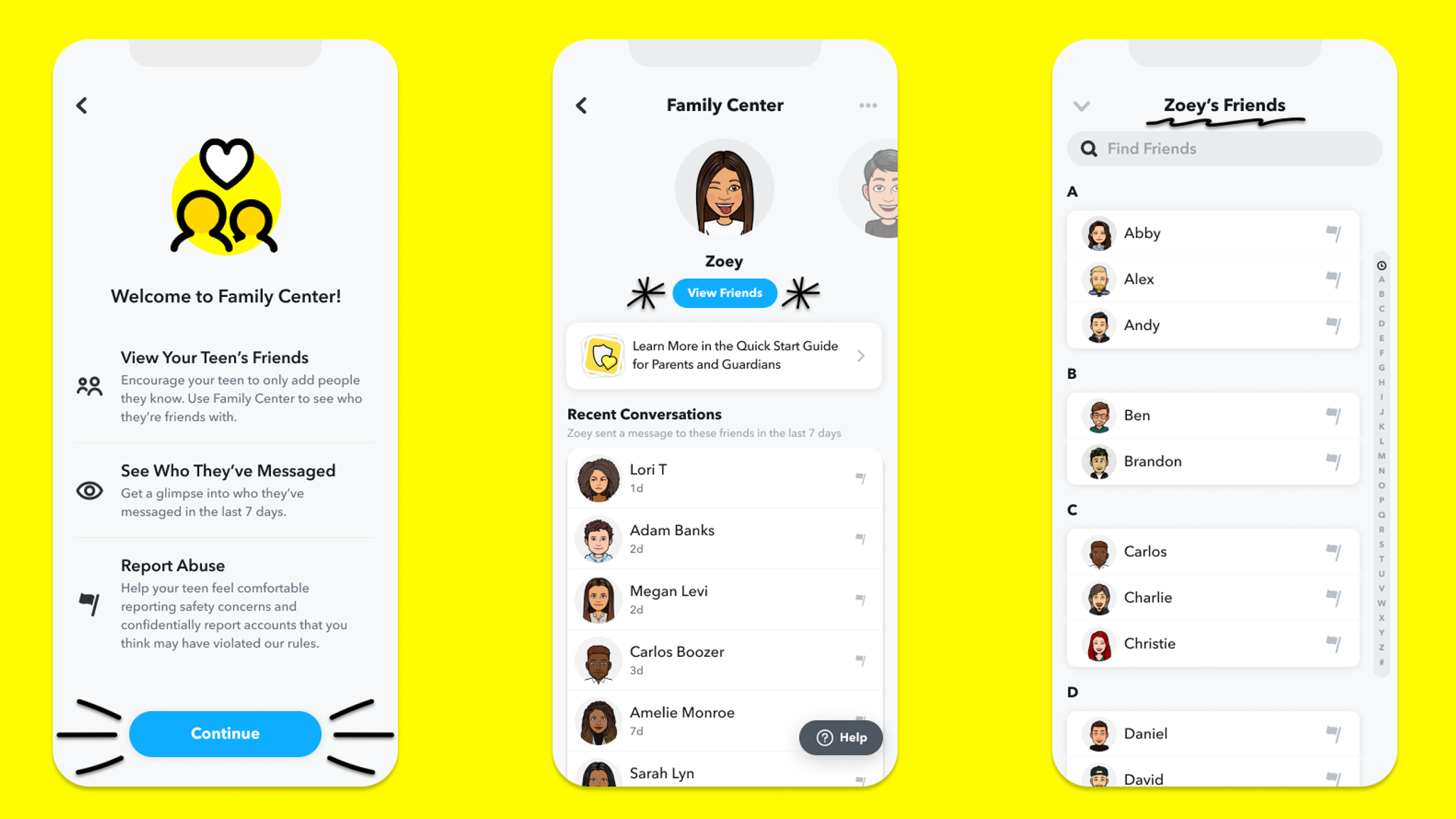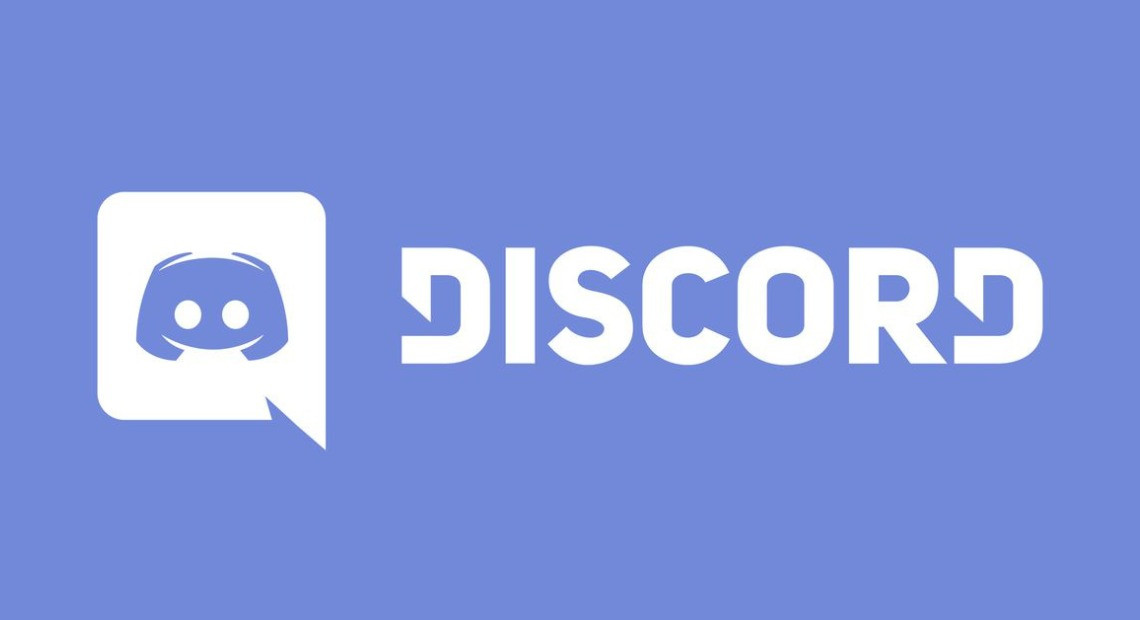Top
Top 15 Best Chatting Sites In The World

Chatting websites are a common way for people to connect with one another in today’s digital world. These internet platforms provide a convenient and accessible way to communicate, from establishing new acquaintances to locating potential romantic partners.
It can be challenging to choose the finest talking sites because there are so many possibilities. We have therefore created a list of the top 15 talking services available worldwide.
These websites were picked because of their user-friendly layouts, extensive feature sets, and sizable user bases.
There is bound to be a talking site on our list that suits your needs, whether you’re seeking for light banter or something more serious. So without further ado, let’s get started with the top 15 talking services worldwide.
15. Houseparty
![]()
With the help of the social networking software Houseparty, users can video chat with their pals. During its debut in 2016, it has grown in popularity, especially since the COVID-19 pandemic when individuals were looking for ways to maintain relationships with friends and family while engaging in social seclusion.
Houseparty is ideal for virtual gatherings, game evenings, or keeping up with friends because it allows users to video chat with up to 8 people simultaneously. Additionally, it contains a function called “Facemail” that enables users to create quick videos to send to their friends.
In-app games like Heads Up, Trivia, and Quick Draw are also available for users to play with friends while on video conversations.
Additionally, users can connect their accounts and distribute Bitmojis and stickers during video chats via Houseparty’s integration with Snapchat.
Overall, Houseparty is a terrific choice for anyone seeking for a social video chatting software because it provides a fun and simple method to remain in touch with friends and family.
14. Zoom
/cloudfront-eu-central-1.images.arcpublishing.com/prisa/3VRDUWXRZL2RI2UAZI3S6LCSUY.jpg)
Zoom has been popular, especially during the COVID-19 pandemic. Users can host and attend virtual meetings, webinars, and video conferences worldwide.
Remote work, online learning, and virtual events use Zoom for screen sharing, virtual backdrops, recording, and file sharing. Businesses, schools, and organizations worldwide use it due to its reliability and user-friendliness.
Free Zoom permits up to 100 people and 40 minutes per meeting, whereas subscription versions offer more capabilities and extended meeting periods. Zoom may be used on a desktop, laptop, or mobile device, making it convenient for travelers.
13. iMessage

Apple created iMessage for iOS, iPadOS, and macOS. It lets iMessage-enabled Apple users send text messages, images, videos, and other multimedia.
iMessage’s seamless integration with Siri, iCloud, and the App Store is a crucial feature. Users can utilize voice commands to send messages and exchange material between devices.
iMessage also has stickers, emoticons, GIFs, and digital touch messages to personalize discussions. Group messaging and read receipts make discussion tracking easy.
iMessage also uses end-to-end encryption to keep messages private. Apple consumers enjoy iMessage’s many features and seamless interaction with other Apple services.
12. Snapchat

With the help of the social media app Snapchat, users may share fleeting images and videos with their friends and followers. When the app first debuted in 2011, younger generations adopted it with ease.
Snapchat’s “Snap” feature, which enables users to take photographs or videos with filters, effects, and stickers and transmit them to their friends for a brief period of time, is one of its standout features.
Snap is a fun and thrilling tool for sharing moments with friends because snaps may only be viewed once before disappearing.
11. Kik

Launched in 2010, the chat app Kik has been popular among younger demographics. Users can join in group chats and send text messages, images, and videos to other Kik users.
Since users are not obliged to give their phone number when signing up, Kik has a variety of distinctive qualities, one of which is its anonymity. To connect with friends or other users who share their interests, one can instead create a username.
Along with a number of other features, Kik offers stickers, emoticons, and animated GIFs. It also has an in-app browser.
10. Hangouts

Google Hangouts provides audio, video, and message services. It replaced Google Talk in 2013 and integrates with Gmail and Google Calendar.
Hangouts lets users chat with up to 150 people, exchange messages, and make free phone and video calls.
Remote work and online learning are popular because it allows screen sharing and collaboration on Google Docs and other Google apps during video calls. The web and iOS and Android apps offer Hangouts. It’s easy to use and reliable for virtual conversation.
9. Skype

Skype is a 2003 video conferencing and instant messaging program. Skype lets users chat, phone, and share files for free.
Skype is popular for distant business and online learning because it includes paid capabilities like calling landlines and mobile phones, screen sharing, and recording.
Skype can hold up to 50-person group calls, making it ideal for virtual meetings, conferences, and gatherings.
8. Discord

Discord is a 2015 chat and voice platform. It has grown popular for online communities, virtual events, and remote work after being intended for gamers.
Discord is a versatile virtual communication tool with text and voice channels, private chat, and file sharing. It allows screen sharing and live broadcasting.
Discord’s server mechanism lets users create and join themed servers. Servers can be configured with roles, permissions, and channels for diverse talks. Content creators and streamers use Discord because it integrates with Spotify and Twitch.
7. Signal

Signal encrypts voice, video, and text messages end-to-end. Privacy-conscious users have used it since 2014.
Signal emphasizes security and privacy. Only the sender and recipient may read or hear end-to-end encrypted texts, audio, and video calls. Signal is ideal for private and secure communication.
Signal offers group messaging, voice and video calls, and photo and video sharing in addition to security. Stickers and emojis personalize discussions.
6. Line

After its first release in Japan in 2011, the messaging software Line quickly gained traction in other nations across the world.
Voice and video calls, texting, and the sharing of media (images, videos, and stickers) are just some of the functions it provides.
Line’s large selection of emoticons and stickers sets it apart from other messaging apps and lets users express themselves in a more lighthearted and personable manner during chats.
5. Viber

Initiated in 2010, Viber is a mobile application that combines text messaging and voice over Internet Protocol (VoIP). Users can communicate by text, phone, and video call, as well as exchange and view media such as images and videos.
Viber’s ability to sync with a user’s phone contacts is a powerful tool for quickly locating and contacting loved ones.
4. WeChat

The social media site and messaging software WeChat was first introduced by Chinese internet company Tencent in 2011. With over a billion active members, it has now grown to be one of the biggest social networking platforms in the world.
WeChat has a number of services available, including messaging, audio and video conferencing, and the sharing of files, images, and videos.
Like other social media sites, it also has a social media feed that enables users to share moments with their contacts.
WeChat also provides a number of other services, including the ability to order meals, taxis, and mobile payments.
3. Telegram

An app for cloud-based communications called Telegram was initially introduced in 2013. A variety of functions are available, including text messaging, audio and video calling, and the sharing of images and other files.
The emphasis Telegram places on privacy and security is one of its standout features. All communications and media are encrypted and have the option of self-destructing after a certain amount of time.
2. Facebook Messenger

Facebook owns the messaging service Facebook Messenger, which was first made available in 2011. Users can share photographs and other media together with voice and video chats and text messages.
Facebook Messenger’s connectivity with Facebook, which enables users to quickly communicate with their Facebook friends and family, is one of its primary benefits.
Numerous more features are now available, including group chatting, the ability to send stickers and emoticons, and the capacity to play games with buddies.
1. WhatsApp
The messaging service WhatsApp was first introduced in 2009 and was bought by Facebook in 2014. A variety of functions are available, including text messaging, audio and video calling, and the sharing of images and other files.
End-to-end encryption for messages and media is one of WhatsApp’s standout features since it protects the confidentiality and security of user chats.
Group messaging, the option to exchange stickers and emoticons, and the ability to share your location with other users are just a few of the many features it offers.
https://youtu.be/zvI4cVGWJhM
Conclusion
Finally, there are many message and chatting sites with distinct features and purposes. WhatsApp and Signal emphasize security and privacy, while Facebook Messenger and WeChat offer social network integration and mobile payments.
Houseparty and Zoom focus on video chat and virtual meetings. Prioritize security and privacy when exchanging personal or sensitive data, regardless of the app or platform.
Whether for personal or professional communication, choose an app that matches your needs. With so many possibilities, you’ll find a chatting service that meets your needs and keeps you in touch with friends, family, and coworkers.
Top
Is OctaFX Legit? Examining the Broker’s Global Standing

The world of modern finance has become one of the most dynamic and fast-growing environments. Today, technology, investment, and online trading blend into a single ecosystem where millions of people explore new financial opportunities. As more traders turn to global platforms for forex and CFD trading, one question appears again and again: is OctaFX legit?
Octa is a well-established international broker with more than a decade of global presence. Over the years, it has built a reputation for offering competitive spreads, reliable execution, and modern trading tools suited for different styles of trading. Its user friendly interface and stable platform performance have made it a familiar choice among both beginners and experienced traders who value consistency and transparency.
Although Octa operates under international frameworks rather than domestic regulation in one specific country, this model is widely used by global brokers that follow recognised industry practices. Many international trading platforms choose this structure to reach a wide audience while maintaining high operational standards. For traders, the key factors that determine whether a broker is legitimate include secure transactions, fair order execution, protection of personal data, and clear communication. Octa supports these principles by openly presenting its trading conditions, keeping client funds in segregated accounts, and applying strong security measures to protect user information.
As the culture of investing develops, traders increasingly understand that legitimacy is not only about regulation. It also involves education, risk awareness, and access to reliable information. Octa provides analytical tools, webinars, tutorials, and market insights that help users learn the basics of trading and gain deeper knowledge. This educational support encourages responsible decision making and reflects a global transition toward long-term skill building rather than quick speculative behaviour.
Of course, trading always carries risk. No broker, regardless of its reputation, can remove market volatility or shield users from the consequences of leverage. Octa addresses this openly by displaying clear risk warnings and encouraging traders to approach the financial markets with realistic expectations, discipline, and awareness.
So, is OctaFX legit? Octa operates as an international broker with a strong global presence and a commitment to transparent, secure trading conditions. It gives traders access to world markets while supporting their growth through educational resources and consistent service. Ultimately, success in trading depends not only on the platform but also on how each trader manages knowledge, strategy, and risk in a constantly changing financial landscape.
Top
Smarter Maintenance Management: How Digital Tools Are Transforming Preventive Maintenance and Facility Operations

In every modern industry — from manufacturing plants to amusement parks — equipment reliability defines performance. Unexpected downtime, inefficient scheduling, and poor asset visibility can drain productivity and profits. As organizations strive to become more data-driven, maintenance departments are adopting smarter systems to manage assets, schedule repairs, and ensure safety.
This digital shift is powered by Computerized Maintenance Management Software (CMMS) — a technology that has evolved from simple work-order trackers to intelligent, cloud-based solutions capable of predictive analytics and full asset lifecycle management.
One of the most respected names in this field is MAPCON, a leading CMMS platform trusted by facilities teams, manufacturers, and maintenance professionals worldwide. Known for its scalability and ease of use, MAPCON helps organizations streamline operations, improve equipment reliability, and reduce maintenance costs.
This article explores the essential role of maintenance management systems, why preventive maintenance matters, and how software like MAPCON supports smarter, safer, and more efficient operations — from factory floors to amusement parks.
1. Understanding Preventive Maintenance in the Digital Age
Preventive maintenance (PM) is a proactive approach to equipment care that focuses on performing regular inspections, adjustments, and replacements before a breakdown occurs.
Rather than waiting for machinery to fail, PM strategies aim to detect issues early — extending equipment lifespan and minimizing costly downtime.
The Traditional Challenge
In the past, preventive maintenance was often managed with spreadsheets, paper logs, or basic scheduling tools. These systems lacked integration and visibility, making it difficult to track maintenance history or coordinate team activity. Miscommunication between departments led to missed inspections and inconsistent data.
The Modern Solution
Enter digital PM systems, designed to automate scheduling, store maintenance records, and provide analytics on equipment health. A PM maintenance software solution enables organizations to:
- Schedule and track recurring maintenance tasks automatically
- Monitor asset performance in real time
- Manage spare parts inventory efficiently
- Assign work orders and track completion digitally
- Generate performance reports to guide future maintenance decisions
The result is a well-organized, efficient operation where maintenance isn’t reactive — it’s predictive.
2. The Core Benefits of Implementing PM Maintenance Software
Whether you manage a manufacturing plant, a school district, or a large facility, investing in preventive maintenance software delivers measurable value. Here are the most important advantages:
A. Reduced Equipment Downtime
One of the biggest costs in operations is unplanned downtime. Preventive maintenance systems analyze asset performance and alert technicians before a breakdown occurs — ensuring continuous production and minimal disruption.
B. Cost Efficiency
Reactive repairs are typically 3–5 times more expensive than planned maintenance. Using software like MAPCON allows organizations to optimize work schedules and part usage, reducing overtime and emergency service costs.
C. Extended Equipment Lifespan
Regularly maintained equipment lasts longer and performs more efficiently. Maintenance software keeps a complete digital record of service history, enabling teams to follow proper care routines.
D. Data-Driven Decision Making
CMMS tools collect data on asset failures, repair frequency, and cost trends. These insights empower managers to identify which assets are underperforming and when replacement might be more cost-effective.
E. Regulatory Compliance and Safety
Industries such as food processing, energy, and healthcare must follow strict maintenance standards. A well-designed CMMS helps ensure compliance by documenting all maintenance activities and inspection records in one centralized system.
3. How MAPCON Enhances Maintenance Efficiency
MAPCON stands out among CMMS solutions for its blend of simplicity, flexibility, and advanced functionality. It’s designed to serve both small facilities and large, multi-site enterprises.
Here’s how MAPCON supports better maintenance management:
User-Friendly Interface
Unlike many enterprise systems that are overly complex, MAPCON offers an intuitive design that allows maintenance teams to adapt quickly. Dashboards and visual reports make it easy to monitor asset performance at a glance.
Customizable Preventive Maintenance Scheduling
MAPCON’s PM module enables users to set schedules based on time, meter readings, or condition. Whether a task repeats weekly or is triggered by equipment usage, the system ensures no maintenance activity is overlooked.
Mobile and Cloud Access
With mobile compatibility, technicians can receive, update, and close work orders directly from the field. This mobility reduces paperwork and keeps communication streamlined across teams.
Integration Capabilities
MAPCON integrates with enterprise systems such as ERP, SCADA, and inventory management tools, creating a unified maintenance ecosystem that enhances collaboration across departments.
Scalability
From single-facility users to global manufacturers, MAPCON scales effortlessly. Its modular design allows organizations to add features as they grow, keeping costs manageable.
4. Real-World Example: Preventive Maintenance in a Manufacturing Plant
Imagine a manufacturing plant that operates 24/7. The facility relies on dozens of production machines — conveyors, compressors, and motors — each with different maintenance schedules.
Without a centralized system, technicians may forget tasks, skip checks, or duplicate work. Over time, these inefficiencies lead to unexpected failures and production loss.
By adopting a PM maintenance software solution like MAPCON, the company can:
- Assign recurring PM tasks with automated notifications
- Track parts usage and reorder inventory automatically
- Log maintenance history and performance metrics digitally
- Identify underperforming equipment using data analytics
After implementation, downtime drops, equipment reliability improves, and maintenance budgets become more predictable.
This kind of transformation demonstrates why digital maintenance systems are no longer optional — they’re essential.
5. Data-Driven Maintenance: From Preventive to Predictive
While preventive maintenance prevents most equipment failures, predictive maintenance (PdM) takes this a step further using real-time data from sensors and IoT devices.
By monitoring vibration, temperature, and performance metrics, predictive systems can identify early warning signs of mechanical failure — even before visual inspection reveals a problem.
Modern CMMS platforms like MAPCON integrate seamlessly with these IoT devices, combining preventive and predictive data to deliver a comprehensive maintenance strategy.
This integration enables managers to plan repairs with precision, reduce spare parts waste, and improve overall asset utilization.
6. Maintenance Management Beyond Manufacturing: Amusement Parks and Entertainment Venues
Maintenance isn’t limited to factories and facilities. In the entertainment industry, reliability is just as critical — particularly for amusement and theme parks where safety and uptime are paramount.
Unique Challenges
Amusement parks have hundreds of mechanical assets — rides, lighting systems, water pumps, sound systems, and food equipment — all operating under heavy daily loads and strict safety regulations.
Failures not only affect guest satisfaction but can also lead to serious safety risks.
Digital Solutions for Park Operations
A dedicated amusement park management software platform can revolutionize how parks handle maintenance. Using MAPCON, operators can:
- Schedule daily, weekly, or seasonal inspections
- Track ride maintenance history and compliance records
- Assign safety checklists digitally to technicians
- Manage spare parts inventory and vendor contracts
- Access mobile dashboards for live status updates
This ensures rides operate safely, maintenance teams work efficiently, and visitors enjoy a worry-free experience.
Industry Example
Consider a large theme park in Florida implementing a digital maintenance system to manage over 400 attractions. By switching from manual logs to MAPCON’s CMMS, they reduced inspection time by 35% and improved safety audit readiness across all sites.
This demonstrates how robust maintenance software isn’t just for factories — it’s vital in every asset-intensive environment.
7. Asset Tracking and Equipment Reliability
Every maintenance department depends on accurate asset information. A CMMS provides this visibility by tracking:
- Equipment ID and location
- Purchase and warranty details
- Service history and downtime records
- Spare parts inventory linked to each asset
Using MAPCON’s asset management features, organizations gain a real-time view of every asset’s condition. This allows for smarter budget allocation, better scheduling, and fewer surprise failures.
8. Streamlining Communication and Team Collaboration
Maintenance involves coordination between technicians, supervisors, procurement, and management. Poor communication often leads to delayed repairs or redundant work orders.
MAPCON’s centralized system ensures everyone has access to the same up-to-date information. Mobile apps let field technicians upload photos, update job status, and request parts — all while managers track progress in real time.
This collaboration reduces paperwork, improves accountability, and ensures timely task completion.
9. Compliance and Safety Management
Compliance is non-negotiable in regulated industries. Whether it’s OSHA, ISO, or manufacturer-specific standards, companies must maintain detailed records of every inspection and repair.
MAPCON’s CMMS simplifies compliance by automatically storing logs, certificates, and digital signatures. When auditors request proof of maintenance, managers can generate reports in seconds.
In amusement parks, where safety inspections are required daily or weekly, this automation saves hours of administrative work.
10. How Maintenance Software Supports Sustainability Goals
Sustainability is an increasing priority for organizations around the world. Preventive maintenance plays a key role by:
- Reducing waste through longer equipment lifespan
- Minimizing energy consumption with efficient operations
- Ensuring safe disposal and recycling of spare parts
MAPCON’s analytics allow managers to track energy-intensive assets and plan maintenance that aligns with environmental goals — helping organizations balance operational efficiency with eco-responsibility.
11. The ROI of CMMS Implementation
The financial benefits of implementing maintenance software can be substantial. Studies show that organizations using CMMS experience:
- 20–30% reduction in equipment downtime
- 10–15% lower maintenance costs
- 5–10% higher equipment lifespan
- Increased safety and compliance readiness
For most companies, CMMS systems pay for themselves within the first year of deployment through reduced emergency repairs and better asset utilization.
12. Future Trends in Maintenance Management
As industries evolve, maintenance technology continues to advance. Emerging trends include:
- Artificial Intelligence (AI) for predictive analytics
- Augmented Reality (AR) for hands-free technician guidance
- Digital Twins for virtual simulation of asset performance
- Integration with ERP and IoT ecosystems for unified data flow
MAPCON remains at the forefront of these innovations, helping organizations stay competitive by turning data into actionable insight.
13. Choosing the Right CMMS for Your Organization
Selecting the best maintenance software depends on your operational scale, industry, and goals. Key considerations include:
- User-friendliness and ease of setup
- Cloud versus on-premise deployment options
- Integration with existing enterprise systems
- Mobile access and offline functionality
- Customer support and training availability
MAPCON offers flexible configurations suitable for both small facilities and large enterprises, making it an excellent choice for organizations seeking to modernize maintenance operations without overcomplicating processes.
14. Conclusion: The Future of Maintenance is Smart, Connected, and Data-Driven
From factories to theme parks, maintenance is the foundation of safe and efficient operations. As equipment becomes more complex and expectations rise, digital systems are transforming how maintenance is planned, tracked, and analyzed.
Computerized Maintenance Management Software (CMMS) empowers teams to stay ahead of problems rather than reacting to them — saving time, money, and energy while improving safety and reliability.
Solutions like MAPCON combine decades of experience with modern technology to provide organizations with the tools they need for predictive, preventive, and precise maintenance management.
To learn more about preventive maintenance and asset reliability, explore:
👉 PM maintenance software — for automating scheduling and improving equipment uptime.
👉 Amusement park management software — for ensuring guest safety and efficient operations across rides and attractions.
With smart systems like MAPCON leading the way, the future of maintenance management is intelligent, connected, and built to last.
Top
CisporaSeek: The Smarter Way to Search and Discover Information

We live in a time where there’s no shortage of information — but finding the right information can still feel impossible. Whether you’re researching a topic, comparing data, or looking for reliable sources, you’ve probably noticed that traditional search engines often leave you buried in irrelevant results.
That’s the exact problem CisporaSeek set out to solve.
CisporaSeek.cz is a new kind of search and discovery platform built in the Czech Republic. It uses artificial intelligence, semantic understanding, and smart filtering to deliver search results that actually make sense. Instead of showing you random pages, it focuses on giving you meaningful, verified, and contextual information — fast.
In simple terms: CisporaSeek helps people find what truly matters.
What Is CisporaSeek?
Think of CisporaSeek as an upgraded search assistant — one that understands your intent, not just your keywords.
It’s built with AI-driven technology that reads between the lines of your search, identifies what you’re really asking, and gives you results that are smarter and more relevant.
For example, if you search “climate change policies in Czech Republic,” CisporaSeek doesn’t just show random blogs — it points you to official government reports, local research, and verified media sources.
So instead of digging through dozens of pages, you get high-quality, focused results in seconds.
The Vision Behind CisporaSeek
The idea for CisporaSeek came from a simple observation: there’s a gap between the amount of data online and the quality of what people actually find.
The founders saw how frustrating online research had become — too many ads, unreliable content, and endless scrolling. They believed that search could be smarter, cleaner, and more human.
Their mission became clear:
- Make online search intuitive and intelligent
- Connect users with credible and meaningful sources
- Promote transparency, trust, and knowledge sharing
The result is CisporaSeek.cz — a platform that combines cutting-edge technology with a genuine understanding of how people think and search.
Why CisporaSeek Stands Out
1. Smarter Search Results
Unlike traditional search engines that rely only on keyword matches, CisporaSeek understands the context behind your search.
It uses semantic AI — meaning it recognizes relationships between words and ideas. This helps it provide precise, intent-based answers rather than random matches.
2. Reliable Information Only
CisporaSeek doesn’t show results from low-quality or spam websites. Its algorithm filters out unverified content, prioritizing trusted databases, academic research, government sources, and credible publishers.
That means every search result has real value — not just noise.
3. Locally Focused, Globally Relevant
While CisporaSeek.cz is proudly Czech, its insights reach beyond borders. It’s especially powerful for users who need both local data and international context, making it perfect for students, journalists, businesses, and researchers.
4. Private and Secure
User privacy is built into CisporaSeek’s design. Your searches aren’t tracked, profiled, or sold.
It’s a search platform that puts control back in the user’s hands — a refreshing change in today’s data-driven world.
Key Features of CisporaSeek
| Feature | What It Does | Why It Matters |
|---|---|---|
| AI-Powered Search Engine | Uses language understanding to interpret intent | Smarter, more accurate results |
| Trusted Source Indexing | Prioritizes verified academic and media sources | Cuts out misinformation |
| Personalized Recommendations | Learns from your past searches | Saves time and improves discovery |
| Data Visualization Tools | Turns insights into visual graphs | Great for research and analysis |
| Local + Global Data Mix | Combines Czech databases with international content | Broader perspective |
| Privacy-First Design | Doesn’t track or sell data | Builds trust with users |
How CisporaSeek Helps Different Users?
For Students and Researchers
If you’re writing a thesis, preparing a paper, or doing serious academic research, CisporaSeek saves hours of time. It finds verified academic papers, studies, and reports faster — with full citations and related topics.
For Businesses and Professionals
Companies use CisporaSeek.cz to gather market intelligence, analyze competitors, and monitor brand mentions.
Because it delivers data-driven insights instead of random web links, it’s a valuable tool for marketing teams, strategists, and entrepreneurs.
For Journalists and Media Experts
In journalism, accuracy matters more than ever. CisporaSeek helps media professionals fact-check stories, trace original sources, and stay on top of verified developments — avoiding misinformation traps.
For Government and Policy Makers
By connecting official databases and public records, CisporaSeek simplifies access to critical policy data and regional insights, supporting transparent, data-backed decision-making.
The Technology Behind CisporaSeek
CisporaSeek isn’t just another search bar — it’s built on a strong technological foundation designed for speed, precision, and intelligence.
1. Semantic AI Core
Its artificial intelligence engine uses natural language processing (NLP) to understand human language the way people do.
When you search for something, it interprets what you mean, not just what you type.
2. Machine Learning Adaptation
The more people use CisporaSeek, the smarter it gets. It constantly learns from search patterns to deliver more relevant results over time.
3. Human-Verified Indexing
Not everything can be left to machines. That’s why CisporaSeek also includes manual verification, ensuring that important or sensitive topics are cross-checked by human editors for accuracy.
Making Search Simpler, Not Harder
The biggest advantage of CisporaSeek is how simple it feels.
You don’t need to know how to use advanced filters or Boolean searches. Just type your query, and the platform does the heavy lifting for you.
It also provides:
- Clean, ad-free results
- Quick summaries for long documents
- Suggested topics so you can explore connected ideas effortlessly
In short, it’s a search tool that works the way you wish search engines worked.
CisporaSeek in the Czech Digital Landscape
Czechia is fast becoming one of Central Europe’s most innovative tech hubs — and CisporaSeek is part of that movement.
By combining AI research, local data systems, and human insight, the platform strengthens the country’s digital identity. It supports:
- Smarter public data access
- Better information transparency
- Stronger academic and business collaboration
In a region full of emerging innovation, CisporaSeek.cz stands out as a homegrown solution with global potential.
CisporaSeek vs Traditional Search Engines
| Aspect | CisporaSeek | Traditional Engines |
|---|---|---|
| Search Method | Understands meaning and intent | Matches keywords only |
| Result Quality | Verified and filtered | Mixed, often commercial |
| User Privacy | Protected and anonymous | Often tracked |
| Local Relevance | Strong Czech integration | Global, but less specific |
| Noise Filtering | Minimal ads or clutter | Frequent sponsored results |
A Step Toward Ethical and Responsible AI
CisporaSeek isn’t just about smart technology—it’s about responsible innovation.
Its approach to AI emphasizes:
- Transparency: Every source is traceable and explainable
- Privacy: No personal data exploitation
- Sustainability: Efficient cloud computing to reduce environmental impact
In an age when data misuse is common, CisporaSeek sets a new ethical standard for search platforms.
What’s Next for CisporaSeek
The team behind CisporaSeek isn’t stopping here.
Their roadmap includes:
- Voice-based semantic search for hands-free access
- Collaboration tools for research groups and teams
- Enterprise APIs for organizations to integrate CisporaSeek’s intelligence into their systems
- Educational partnerships to support universities and libraries
In the near future, CisporaSeek aims to become not just a Czech innovation—but a European leader in intelligent search.
Conclusion
In a world drowning in information, clarity is power.
CisporaSeek gives that power back to users — helping them find, understand, and use information that truly matters.
Whether you’re a student, a journalist, or a business leader, CisporaSeek.cz makes discovery faster, easier, and more meaningful.
It’s not just a search engine.
It’s a smarter way to see the world through information that actually makes sense.

































































































































































































































































































































































































